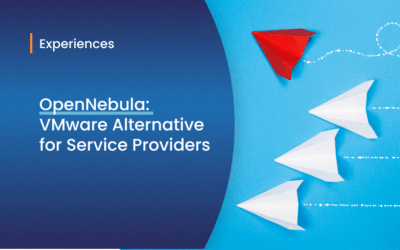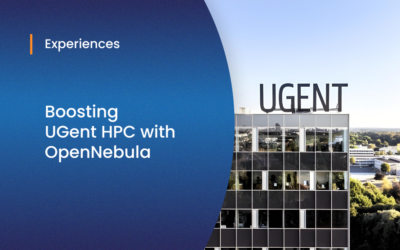This isn’t a technical article like the one I wrote two years ago about High Availability in OpenNebula with LVM. This is a personal opinion article about simplicity versus complexity in cloud computing management.
I started with OpenNebula about 3 years ago. At that time, I worked for a customer and I made this choice mostly because in that moment OpenNebula was the only mature solution, simple, but at the sane time, equipped with all the features needed to build an infrastructure cloud.
Now, at the beginning of this year, I had to compare the existing cloud automation systems one more time, and I confirmed my preference for OpenNebula… and this time I feel even more confident about my choice. This second time I chose simplicity over complexity. I tell you why with an example.
All of you know the Space Shuttle. It was a very powerful spacecraft, designed for different types of space missions, a credit to the American space industry: it was big, comfortable, powerful… simply wonderful. But the Space Shuttle also had a downside: it was expensive, complex, and very difficult to maintain and repair. After 30 years, 135 missions (and 2 disasters), the Shuttle was decommissioned and now NASA doesn’t have a spacecraft to transport its astronauts to and from the ISS.
All of you also know the Soyuz, the Russian spacecraft. it’s the opposite of Space Shuttle. In relative terms, it’s simple, small, not expensive… and very solid. It was designed specifically to carry cosmonauts to and from space stations, it works from the 1968 (the time of Apollo missions), it has made about 450 launches (with 2 disasters like Space Shuttle), but now it’s the only way to reach the ISS, also for the American NASA astronauts. There is a lesson to be learned here that has to do with simplicity.
In my opinion OpenNebula is like Soyuz, it represents simplicity in the specific niche of enterprise cloud computing and data center virtualization. It isn’t based on sophisticated, complex protocols and architectures, but it is solid, reliable, complete, simple and inexpensive. In 3 years I had no problems, 3 years of uptime. The latest version (4.0) has also a very nice web interface (for me) and adds some functionalities like Ceph integration that are much appreciated. Other cloud management platforms are, in my view, like the Space Shuttle: very impressive trying to be all things for all people, but not rock solid, stable, scalable and effective like OpenNebula.



This space metaphor reminds me also the story of Americans that invested money in building a pressurized ink pen that could write while on 0 gravity, while Russian kept using pencils 😀
Good article Alberto!